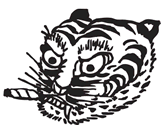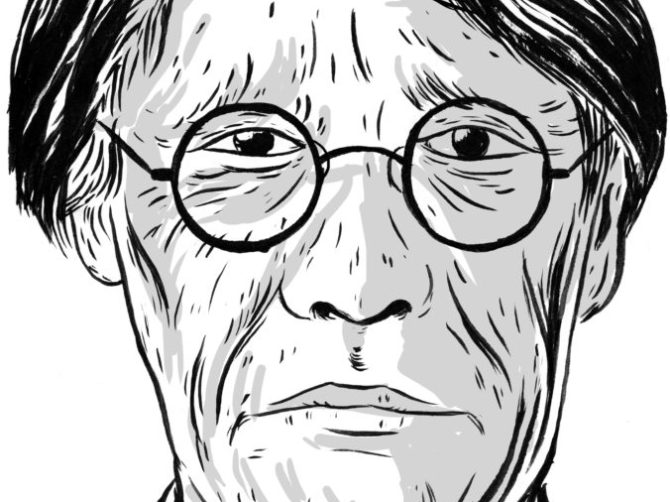In Max Yeh’s new novel, Stolen Oranges, a Chinese American historian discovers six anonymous documents in places ranging from the archives of Imperial China to a rare book shop in Mexico City. From these texts, written in Spanish and Chinese, he constructs a hitherto unknown correspondence between the Chinese Ming Emperor Wanli and Miguel Cervantes, author of Don Quixote.
In this interview Max Yeh talks with us about genre, translations, and pseudo-historic texts.
Kaya Press: Would you classify Stolen Oranges as a novel? If not, as what genre of book?
Max Yeh: Stolen Oranges is not a novel in the traditional sense of the word, because it has no characters interacting to make a plot. The figures here, rather, overlay each other textually. Their lives interrelate through metaphor. The work belongs to a recognizable genre much older than the novel that we might describe as a “forgery” or the “false document,” the bane of judges and historians. But cast here as a “novel,” these forgeries take on an aura more than truthfulness (the intent of real forgeries), and because the truth to which they aver is itself a fabrication, they have the opportunity to surpass themselves as well as the dialectic between Heaven and Hell. This is, of course, how novels started—as fake letters, travel reports, and biographies.
KP: What led you to connect these two characters of Cervantes and the Emperor together, specifically in this epistolary form?
Yeh: I began the way the scholar/translator of these letters began, with Cervantes’ claims in his prefatory remarks to the Second Part of Don Quixote that he had received a letter from the Emperor of China—a claim that cannot be disproven.
KP: Your first novel, Beginning of the East, is also written in a similar pseudo-historic way. What do you think your readers gain from experiencing these different perspectives on the past?
Yeh: Both novels examine the ambiguous experience of the past weighing upon the present and suggest that that ambiguity depends entirely on our own constructions of time and history. Our feelings of self-being in the present depend entirely on the way we fabricate our identities in the past, and a simple construction will result in a curtailment of the sentiment of presence.
KP: The book also focuses on a rare book collector, and the idea of translations and lost texts. Are you a collector of rare books or interesting translations? Where are some of your favorite bookstores in the world?
Yeh: Yes, I am a bookman—or I was until I passed beyond acquisition into dispersal, which happens when we get old. Everything we know about the past, and most of what we know about the present, take place in that grandly plausible and dangerously abstract world of language. Understanding, as language, is both substance and instrument of our feelings, ideas, and confluence with the world. This language is not a single language but the whole of language as human action, within which the intersections of language with itself—the crossings not only of one language with another but the traffickings of a language with itself—make up the densities and complexes of self and world. Books are just its graphic reification. Gathering a library by browsing the old stalls in Paris, haunting the great used bookstores near the University of Chicago, or poring over rare book catalogues was very different from collecting other objects because a library was its contents, a whole history within which one wanted to locate one’s self.
KP: Why were you initially drawn to writing these rewritten histories? Where did you draw your inspiration from to get into this genre?
Yeh: My ignorance forced me to want to understand, and my dullness (I have no wit) forced me to understand in my own way.
KP: What was the writing process for this work like? Did you spend a lot of time researching before the actual writing happened?
Yeh: I researched for years before writing because I wanted to be as historically accurate as possible and to include as much factual information as possible as befits a good forger. The actual writing was quick because by that time, I had forgotten most of what I had learned.
KP: What aspects of Cervantes and the Emperor do you find the most interesting?
Yeh: They both were intensively (perhaps I should say “extensively”) private people in the midst of very social lives, and that large inner life had much to do with being crazy sons of crazy mothers. This is true also for the third figure in the book, the scholar/translator/editor.
KP: Why do you think a work about the past (rewritten) and the handwritten art form of letters is important in our time of the internet and quick media production and consumption?
Yeh: Time is continuously formative, almost by definition. Shockley, Bardeen, and Brattain would have invented nothing without a million years of language, 2000 years of books, and a pretty complicated mathematical language formed over an equally long time. Nor could we use their and consequent inventions. Those who chose not to see the past in the present simply move the moment into a certainty. Making things uncertain has been my intention in this book.
Order your own copy of Stolen Oranges HERE!


Leave a Comment
We'd love to know what you think.